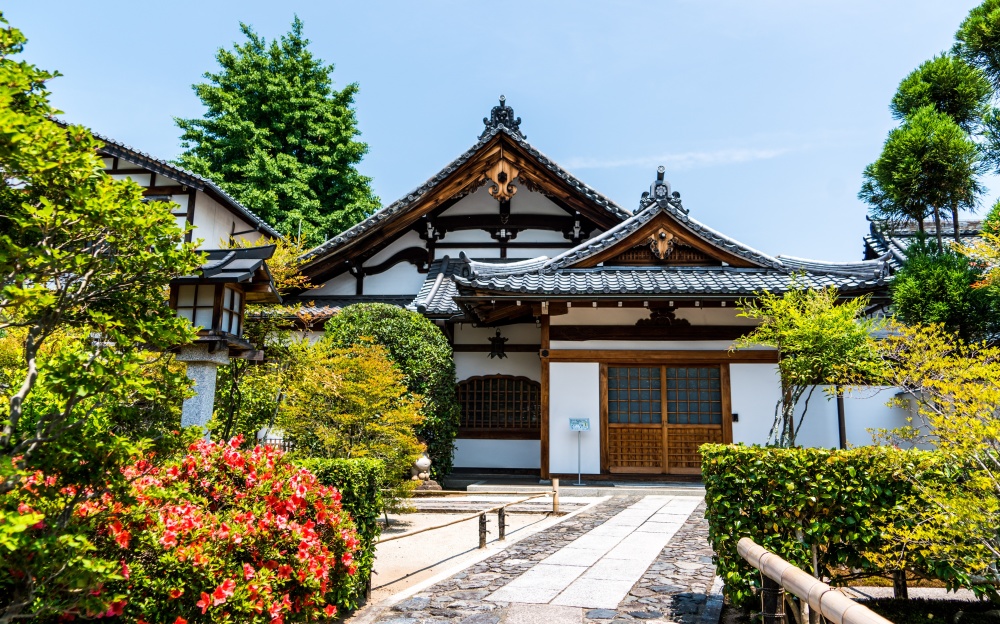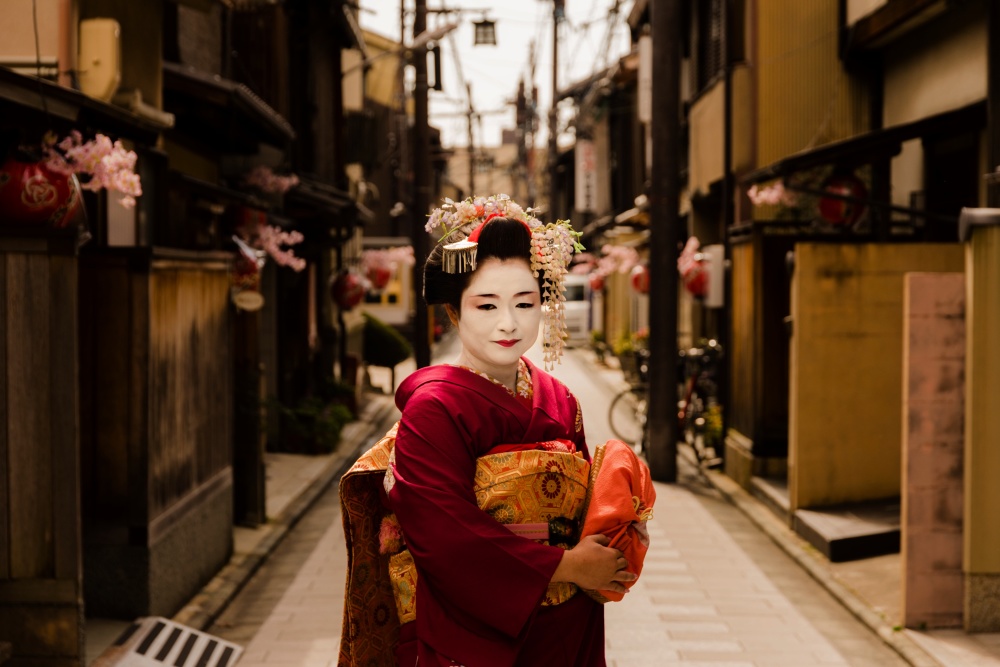Updated February 16, 2024
Tipping in Japan: The Complete Guide
Even if you think that you’re familiar with Japanese culture, you might still feel clueless in some social settings. The depictions in movies and shows can often be misleading. As a foreigner, it may be hard to tell what’s true and what’s not at times.
This is why today, I want to talk about one of the most basic concepts that have strong cultural implications in Japan, which is tipping.
If you’re living or traveling in Japan, you’ll definitely want to learn about the culture around this concept that confuses many people across the globe. Let’s dive right in.
Do You Have to Tip in Japan?
At first glance, the answer to this question is a simple “no.” You generally don't have to tip in Japan. This may seem odd as it’s quite customary, or even flat-out compulsory to leave a tip in the United States, where service industry workers survive off tips.
However, this isn’t true for Japan, as well as for most countries in Europe. This is because, contrary to the general practice in the States, service workers get paid a high enough wage in these countries to not need a tip.
That said, while it may look like Japan and European countries are similar in this regard, there are some differences. In most European countries, tips are simply a bonus. It’s seen as a gesture of appreciation for a job well done.
Yet, this is not the case in Japan. You may confuse — or in extreme cases, even offend — a service worker just by leaving a tip at the end of a delicious meal.
Let’s now look at some situations where it’s flat-out rude to tip in Japan.
Is Tipping Rude in Japan?
If you’re from the United States or Canada, you may have heard about the no-tipping culture in Japan. People often ask me, “why is there no tipping in Japan?” because they find it jarring.
There are some places in Japan where you absolutely should not tip. Tipping may even come off as an insult. In certain cases, it could even be taken as a sign that you don’t think the establishment is good enough to survive on its own. This could be the case at restaurants in Japan.
Tipping in Restaurants and Cafes
The first thing you should know is that no matter where you go in Japan, you should never leave a tip at a restaurant or a cafe. In the best-case scenario, your tip will be politely rejected. In the worst-case scenario, the server may think you left the money unintentionally. They may be confused, or even find it insulting. And as you can imagine, that’s not ideal.
Restaurant and cafe staff in Japan get paid for their labor. The idea is that you only pay for the food you eat, which comes with the service, and the owner of the establishment pays the workers to keep the business running. It makes sense, and this is how it’s always been in Japan.
And while North American style tipping is rare, some Japanese restaurants do have a service fee or de facto tip — they just take a different form.
It’s usually called an “Otoshi,” which is a small appetizer brought to the table when you sit down without your request. The cost of the Otoshi is supposed to cover the service fee, and it’s usually not indicated on the menu.
These are common at Japanese “Izakayas” (restaurants designed for drinking parties and going out as a group). Since use of the space is part of the value, sometimes there will be an Otoshi or “seat charge” to ensure a minimum level of payment for each table.
Like at restaurants, leaving a tip at a bar is also not typically done. It could even be seen as offensive in the worst case, so it’s best not to. You can say a simple “thank you” instead. Check my previous blog post to learn how to say thank you in Japanese in almost every scenario, in case you don’t know how.
Tipping in Hotels

In Japan, you shouldn’t leave a tip in hotels either. There’s a slight difference here, however.
Nowadays there are many chain hotels that originate from the west. If you’re staying at one of these, tipping can be a polite gesture. However, most Japanese hotels don’t accept tips, and it may even be considered rude to leave one. At best it’s unnecessary, so I generally don’t recommend tipping at hotels.
Traditional Japanese hotels are called “Ryokans.” They’re one of the most common types of accommodation in Japan, and you should avoid tipping at them.
And if you do try to leave a tip and are rejected, it’s very important not to insist. This may add insult to the injury and you may end up offending the worker even if you didn’t the first time.
At some higher-end ryokans, the hotel assigns you a personal attendant. When this is the case, it may be acceptable to tip your personal attendant for a specific, special service they provide. This is an exception to the rule.
Also, keep in mind that most service workers in Japan aren’t even allowed to accept tips. It may be a rule of the establishment, and making them take the tip may get them in trouble with their boss or supervisor. You might think you’re doing them a favor, when really you’re creating a troublesome situation for them.
Tipping Your Driver
Be it a taxi, or other means of transportation, tipping your driver is a no go in Japan. In fact, you should even avoid rounding up the fare, as you’ll likely get the change back down to the cent anyway.
If you feel like expressing your gratitude, just say “thank you” politely as you get off. “Arigatou Gozaimasu” will suffice as you can say it to strangers and acquaintances.
If you’re looking for other expressions you may need, I also wrote an extensive post that includes the most basic phrases in Japanese you can use in your daily life.
While these places I mentioned above are the most prominent examples of where not to tip, there are still some exceptions.
Let’s look at some cases where tipping is allowed or considered okay in Japan.
When Is Tipping Allowed in Japan?
Even though there are some exceptions to the rule of not tipping in Japan, keep in mind that you never have to tip. There are a few exceptional times when it can be a nice gesture, but it’s almost never rude to skip the tip. So that’s what I recommend doing whenever you’re at all unsure.
There may be situations where a tip is expected only because most other people do, but these are usually places where tourists frequent. Let’s look at a few of these exceptions that you may come across.
Tipping Interpreters and Tour Guides
If you’re traveling in Japan as a tourist, you’re bound to cross paths with either a tour guide or an interpreter. People in these professions often work exclusively with foreign tourists from western countries, so they may be accustomed to receiving tips.
While a tour guide certainly won’t get mad if you don’t tip them, they will most likely accept it when you do. Don’t take it personally if you’re rejected, just say thank you instead. The same goes for interpreters too.
Tipping at a Travel Agency
Much like tour guides and interpreters, travel agencies frequently deal with tourists that are used to tipping. This has eventually created a culture where tipping is an acceptable practice, unlike other establishments in Japan.
If you feel like you’re getting good service, you can tip the person helping you with your travels. There’s no set amount, so feel free to give an amount you think is appropriate.
Speaking of which, if you’re planning a trip to Japan but haven’t set your schedule yet, check out my post about the best times of the year to visit Japan.
Tipping a Geisha

You may already be familiar, but geishas are a part of the rich culture Japan offers. You might get to meet one, and if you do, leaving a tip for these performance artists is quite okay.
It’s common to have a private dinner with a geisha. During this dinner, the geisha will entertain you by teaching you games or playing music and serve you drinks. At the end of your dinner, you can leave a nice tip to show your appreciation.
However, always make sure to tip the right way. Let me explain what I mean by this.
Tipping Etiquette: How to Leave a Tip When You Need To
As I close out today’s post, I’d like to talk about the proper way to leave a tip in Japan. After all, although it’s sometimes allowed, tipping is a sensitive issue. There’s definitely a wrong way to do it, which you’ll want to avoid.
When leaving a tip anywhere in Japan, always put the money in an envelope. Then, hold it with both hands and present it to the server/employee as you bow your head down in respect. If you are leaving a tip in a room at a ryokan, leave it in an envelope next to your bed.
Lastly, let’s finish with a warning. As you can guess, taking the money out of your pocket or purse and visibly handing the cash is a big no-no. This is considered quite rude, so make sure to avoid doing this at all costs.
Get Job Alerts
Sign up for our newsletter to get hand-picked tech jobs in Japan – straight to your inbox.







